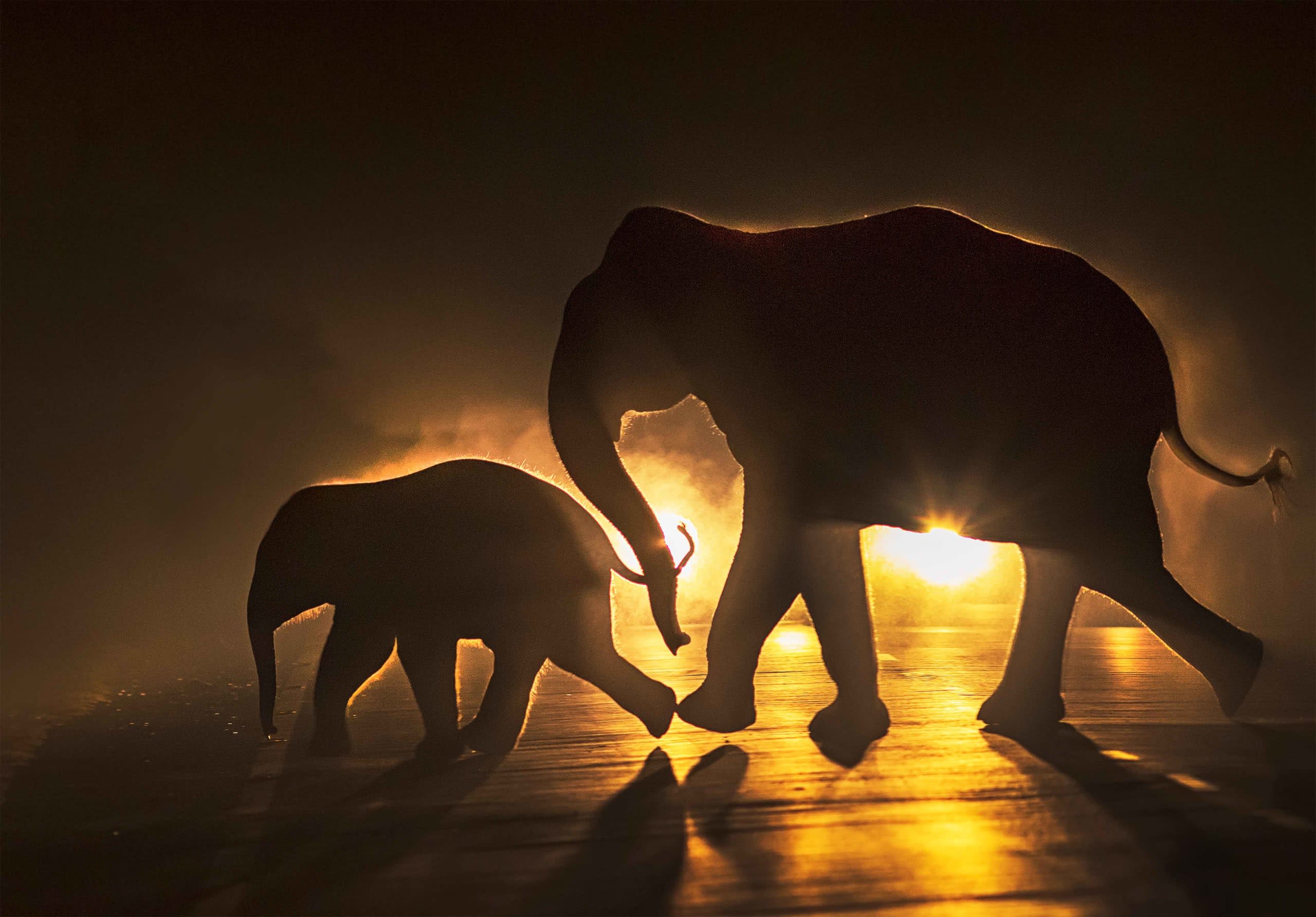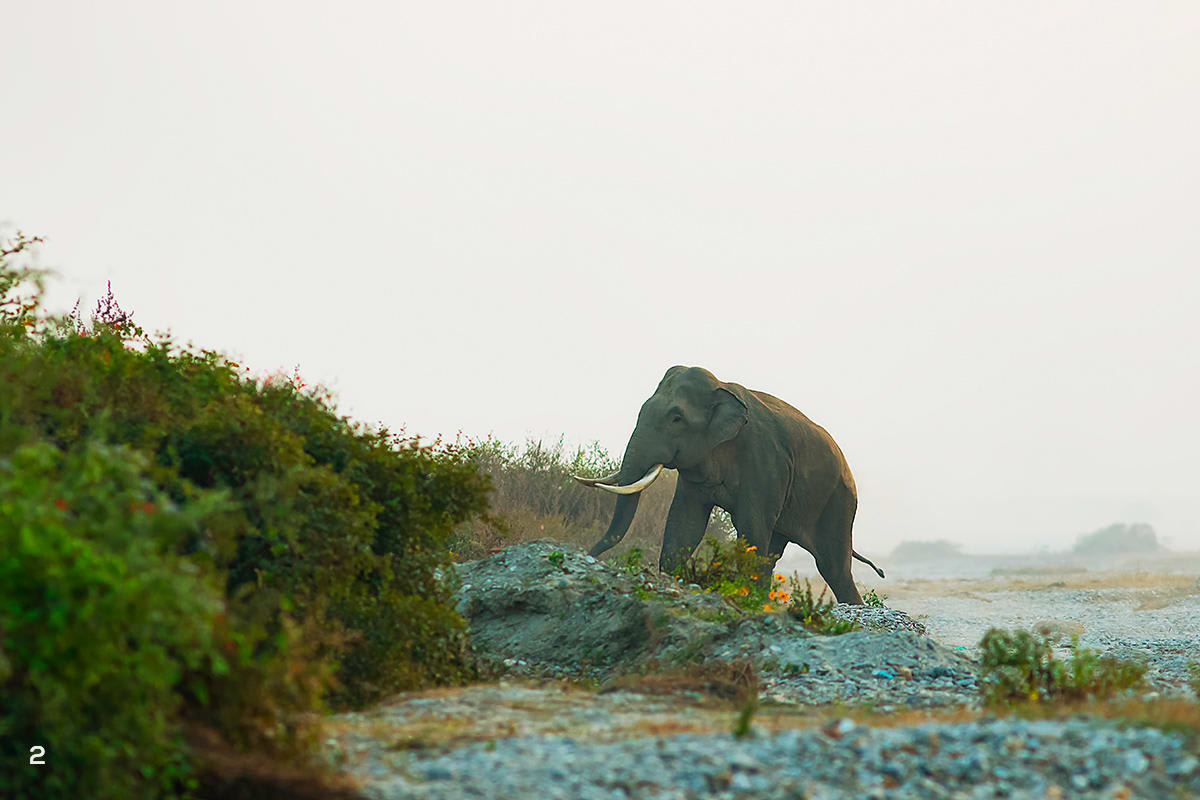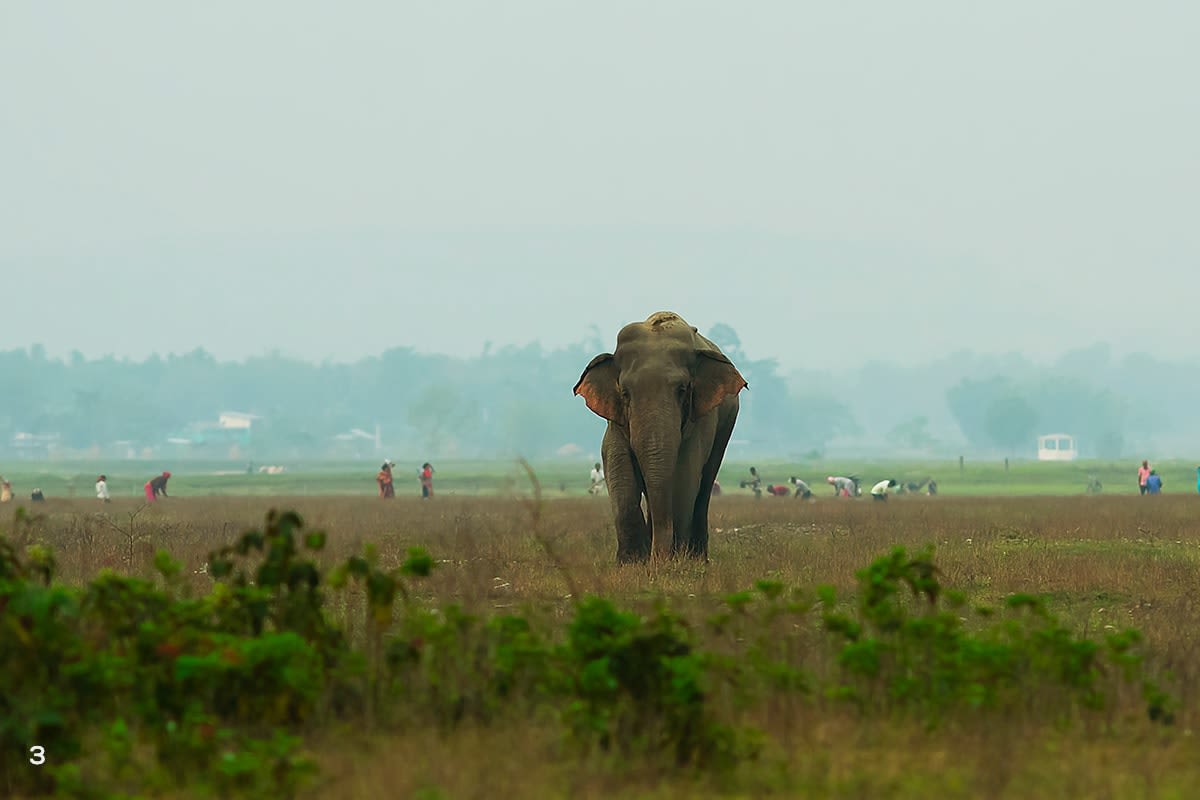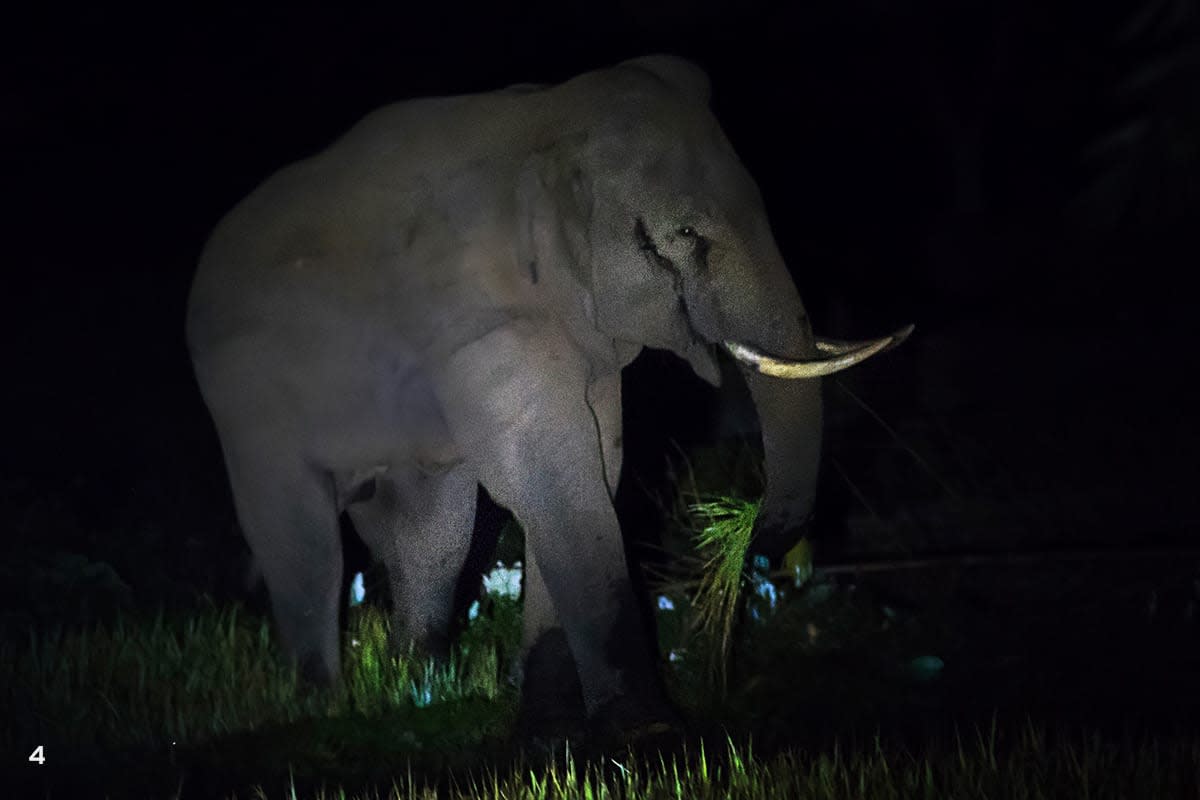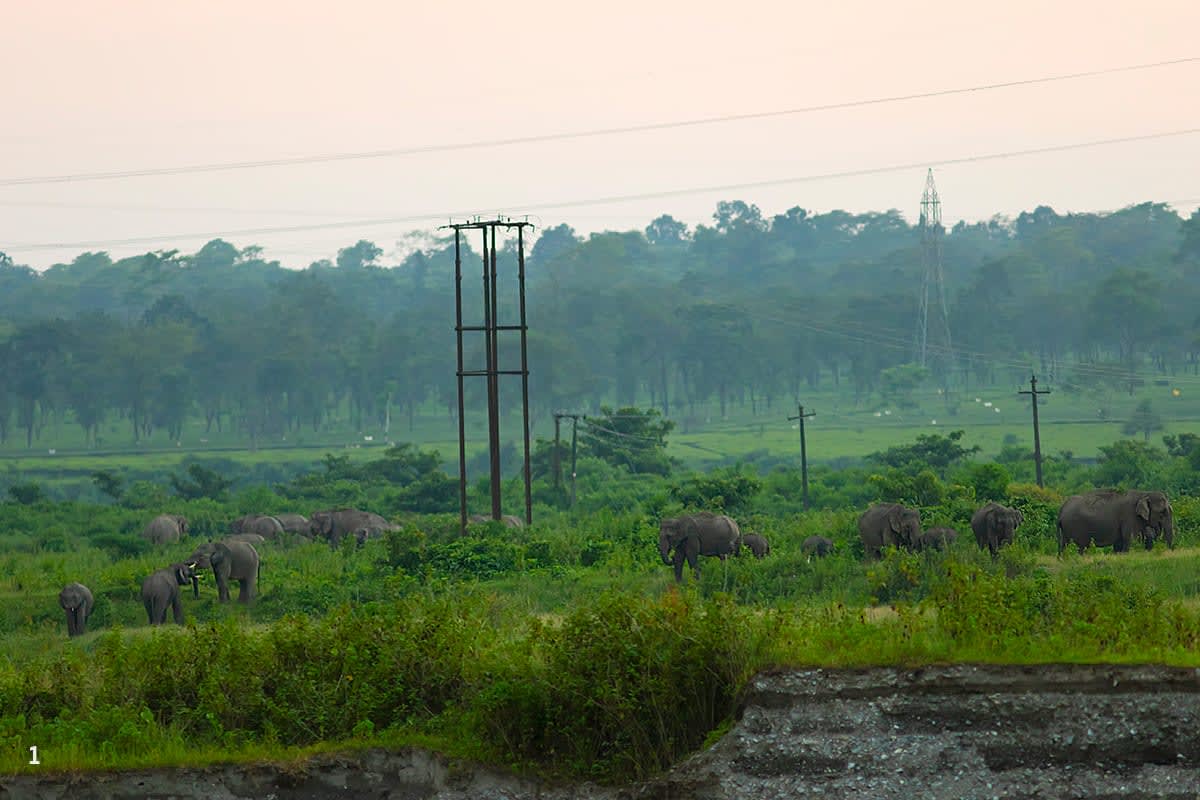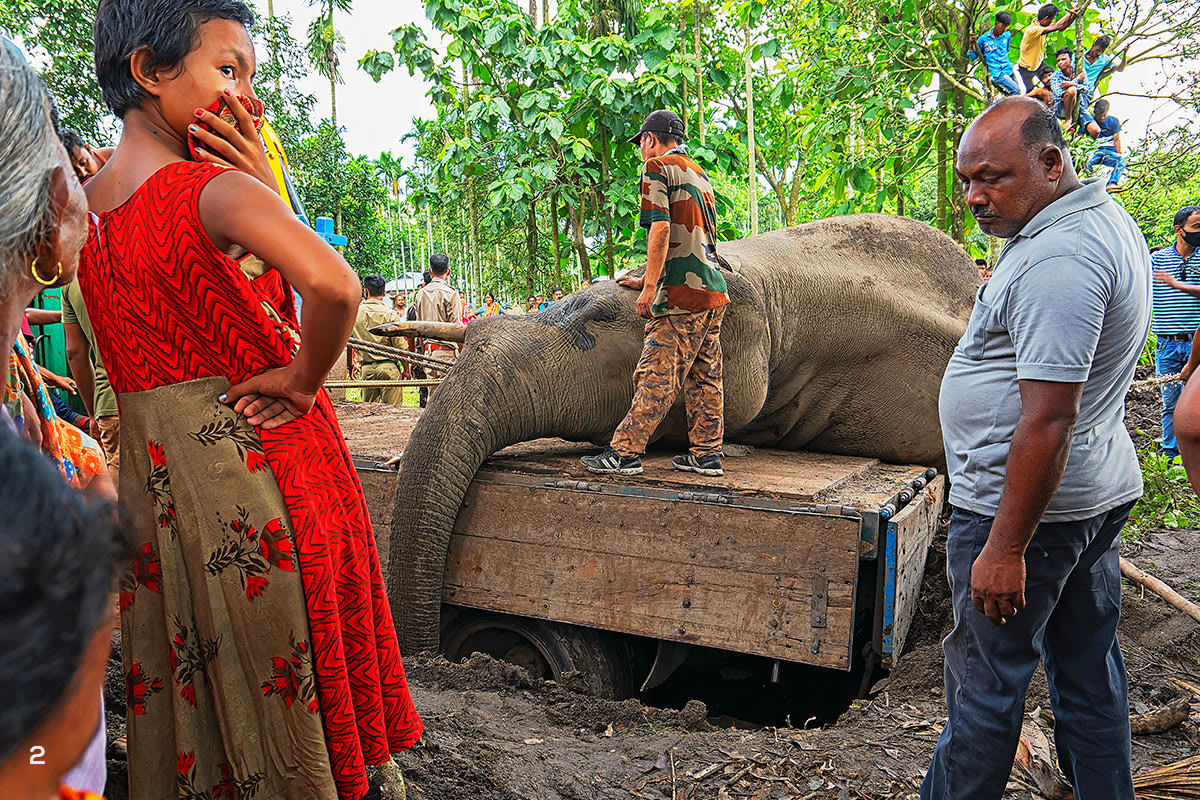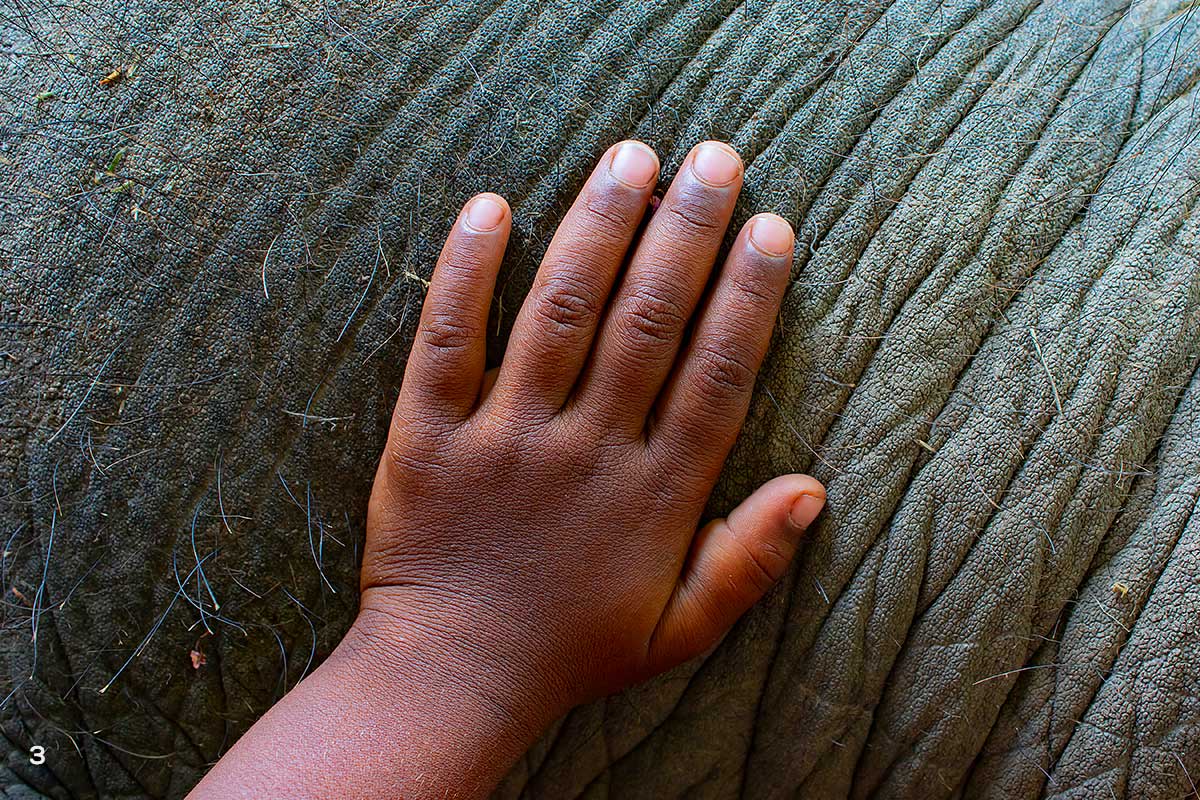 Listen to this article
•
15:34 min
Listen to this article
•
15:34 min
A herd of elephants huddles together as its matriarch (the leader) prepares to give birth. This is the 50-odd-year-old female’s seventh child, and she is also a grandmother. She stands beside a waterhole inside the Chapramari Wildlife Sanctuary in West Bengal. The evening cacophony of birds dies down and is replaced by the sound of crickets and cicadas. After a long time in labour, the matriarch gives birth to a male calf. The baby elephant’s tiny tusks are barely visible as the entire herd greets the newborn by sniffing it and touching it with their trunks. The herd has to be careful as leopards lurk nearby, trying to get at the vulnerable neonate. However, the leopard is only a temporary threat. More serious risks await this male, born in a landscape where elephants and people share space in a love-hate relationship.

Cover photo: Silhouetted by the headlights of a dumper truck, an elephant and her calf cross the Siliguri-Nepal highway (Asian Highway 2) to reach the nearest forest of Bagdogra in North Bengal. Elephants crossing this highway have to negotiate heavy traffic and face hindrances from local people and outsiders.
The matriarch rests after giving birth. She has seen the landscape change dramatically over time, making it more and more difficult for her species to persist. The lush forests of northern Bengal, once dominated by sal (Shorea sp.) and shimul (Bombax sp.) trees and vast riverine grasslands, are now fragmented by tea plantations, agricultural fields, highways, and railway tracks. This elephant family has lost many members to train accidents which occur almost every year. The elephants have modified their own behaviour and adapted to living with people. The herd knows that it is best to move between the fragmented forests and through tea estates only at night while staying clear of human habitations. They have mapped out the shortest paths between forests. The forest fragments are small, forcing the elephants to be on the move constantly in search of food and water, which exposes them to people. Sometimes, the herd tries to get an easy meal at a paddy or maize field adjoining a forest, only to be chased away by farmers desperate to provide food for their own families. Out of this desperation to save their crops, villagers sometimes put live wires near their fields, with fatal results for elephants who encounter these fences. For the old matriarch, it’s a constant struggle to keep her family safe from electrocution, humans, ever-expanding highways, mushrooming defence (Army, Airforce, BSF, ITBP, and SSB) establishments, and railroads — all of which are squeezing the region’s already limited elephant habitats. Decreasing habitats, coupled with degradation due to climate change and human activities, make matters worse. Acres of forests are now rendered unpalatable for the elephant family as trees have gone to timber smugglers, and herbs have been replaced with thorny woody shrubs of no food value. A green carpet of invasive plants like Chromolaena sp, Ageratina sp, Parthenium sp, and Lantana sp. has drastically reduced the available food for elephants within the small forest fragments. While the going is tough for the elephant family, males have it even more difficult.
Cut to 15 years later. After the death of the matriarch, a new female has taken on the role of leader of the group. The male calf is now a pubescent male of 15. He faces confusing changes in his body, family, and even in his surroundings. Surging male hormones make him more aggressive towards his herd members and the new matriarch is pushing him away from the family herd. Elephant family herds are composed of adult females, subadults, juveniles, and calves. Adult males are separated from the group and lead solitary lives except when mating.
The young male, now pushed out of his birth family, finds solace in the company of a few older bulls who have mastered the art of living with humans in a densely populated and dangerous landscape. The young male learns the tricks of his trade, how to deceive humans and gorge on paddy and maize. He learns of the best places to steal food from humans throughout the year and which areas to avoid. However, he sometimes finds himself in the wrong place, especially when he gets left behind in a crop field after sunrise, only to be surrounded by people. Some people offer prayers to the elephant god in their midst, while others pelt stones and chase him off as retribution for the acres of crops damaged by his kind. Unknown to the elephant, the maize and paddy that comprised his dinner was supposed to sustain the family of humans for the entire year. While some communities revere elephants as gods and accept this damage, the losses are enormous for most others, threatening their livelihoods and food security.
Once the standing crop is harvested, the young tusker learns of newer food sources. With time, he grows bigger and bolder; he realises that people pose him no harm. He grows accustomed to entering villages and knocking down kitchen walls to feed on stored wheat and rice. He breaks into school buildings to eat food stored for the mid-day meal schemes. The male waits for the rain as he knows that people will not be able to hear him when it is raining outside. He approaches the tea estate housing settlement slowly on a profoundly rainy night. He squeezes through the flimsy bamboo barricade created by locals to keep elephants away. Slowly, he uses his sensitive trunk to figure out which house has stored food and, even better, stored liquor! He is distracted by a fruiting jackfruit tree in the middle of the village. As he reaches for the ripe jackfruit, the tree bends and touches something. Our tusker feels a sharp pain in his trunk and slumps to the ground. The jackfruit tree was dangerously close to an overhead power line, and he’s been electrocuted. He was just 20 years old, and his life was abruptly cut short.
The villagers wake up to the sorry sight. They offer puja, flowers, and incense sticks. There are no goodbyes to his mates, nor does his original elephant family know what has become of him. The forest department staff take his lifeless body on a truck to perform a post-mortem. Then they will bury him inside the forest — the very forest he was forced to leave for no fault of his.
Note: Aritra has been studying elephants in northern West Bengal for close to a decade. He has witnessed the death of many of them, especially males, to railway accidents and electrocutions, both accidental and deliberate.



